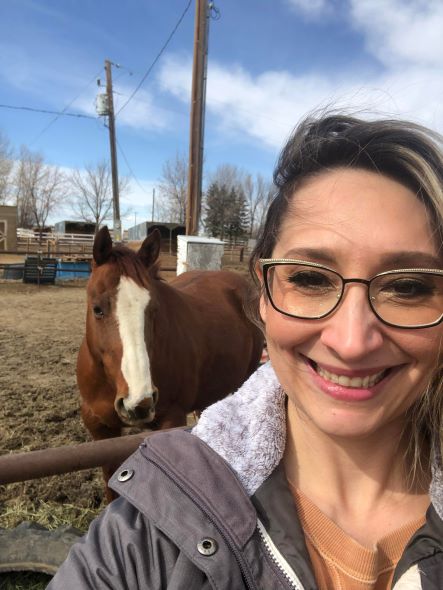)
Career change for Recreation Therapy Aide instructor inspires research
It's been quite the path to becoming an instructor for Amanda Ervin. When she was struck by a back injury which resulted in degenerative disc disease, it cut short her career as a recreation therapist.
"I was on disability for a while," Amanda shares. "I needed to find something else, and I decided, 'I’m going back to school to pursue a master’s degree and I’ll figure the rest out later.’”
The journey took Amanda into the Master of Science in Health Sciences program at the University of Lethbridge where she began an extensive research project as her thesis.
Supporting two organizations, Adaptable Outdoors and the Lethbridge Therapeutic Riding Association, Amanda’s research has measured well-being outcomes for study participants who engaged in adapted recreation activities, particularly “extreme interventions” such as hiking, kayaking, fishing, and horseback riding.
Individuals participating in the research were clients of the two organizations living with disabilities resulting from injuries, or physical or mental health disabilities they’ve had their entire lives.
Because of the varying degrees of ability among the participants, the recreation activities required modifications. “Recreation therapy professionals always modify and adapt. We meet [our clients] where they’re at,“ says Amanda.
Her research spanned over a few years, with participant groups engaging in activities in 2021 and 2022.
The findings have been encouraging. Some of the initial results from both year’s groups indicated that most of the Adaptable Outdoors participants reported an improvement in their well-being after just one session.
“I had people telling me, ‘This is the best day of my life. And as a wheelchair user, I never thought I would be able to touch lake water,’” Amanda shares. “It changed my life doing this research and seeing the impact that recreation can truly have.”
Data collection on her project is finished, and Amanda is currently writing her thesis, with a goal of defending it in the spring. She recently presented her findings at the Alberta Adapted Physical Activity Symposium held at Mount Royal University. She will present them again at the Canadian Therapeutic Recreation Association (CTRA) conference in Jasper, Alberta in May.
Amanda is also keen to share her experiences with her students in the online Recreation Therapy Aide program.
“I think that that's such an encouraging message to these recreation therapy learners that through their careers they're going to get to be creative and they're going to think of ways to offer programs to people that will be meaningful, even if it's not the traditional delivery,” she says. “We need to make our program fit the client. The client shouldn't have to fit the program criteria. That's such an important thing for recreation therapy professionals to be able to do is to modify and adapt as we go along.”
Change and adaptation are very personal for Amanda, with her going from being a frontline recreation therapist to suddenly not being able to. “It emotionally impacted me. In a way, being a researcher is like my adapted way of being a recreation therapist still. And being an instructor now, I get to uplift and encourage a brand-new cohort of students.”





